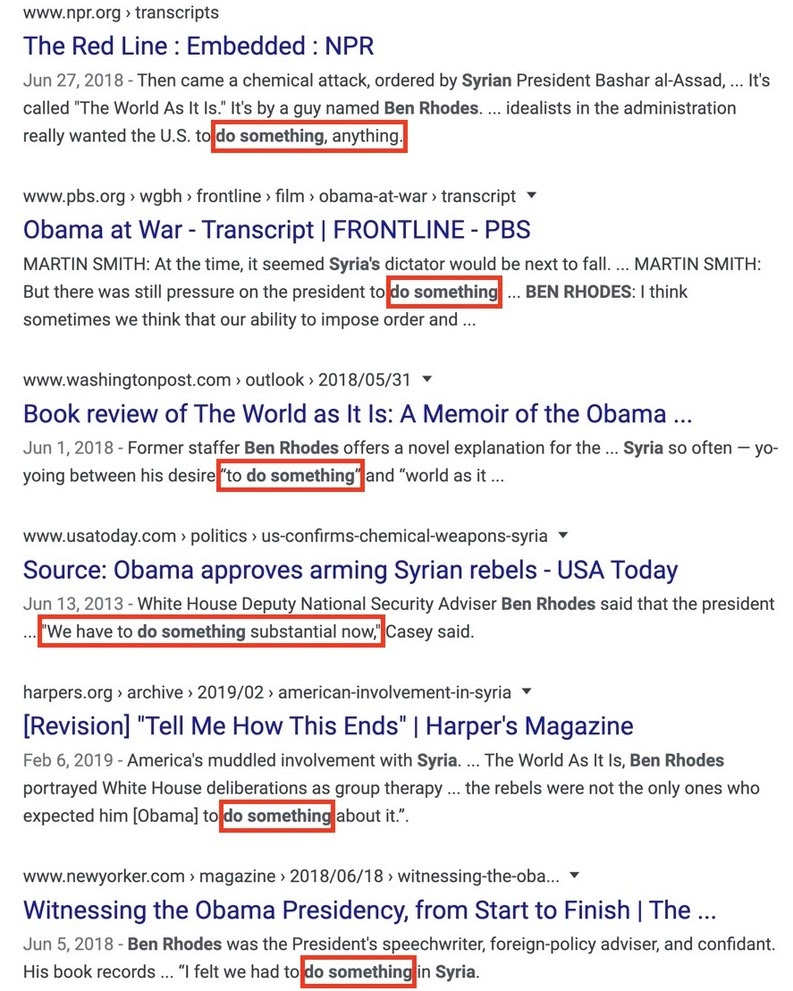The cost of 'performing' security in Syria
Speaking Security Newsletter | Advisory Note for Organizers and Candidates, n°39 | 27 August 2020
Security is tough to measure but some metrics are better than others
Security can be measured in a bunch of different ways. None are perfect, but the useful ones for evaluating security/safety-related policies tend to measure the outcomes of the actions that those policies authorize in a given context — a before & after of frequency of attacks, local perceptions of safety, degree of access to basic necessities, that sort of thing.
The dumb methods disregard outcomes and assume security is produced by the security ‘acts’ themselves. For example, a police commissioner saying that conducting police patrols in a neighborhood more frequently will improve that neighborhood’s safety.
Performing security in Syria
The Obama administration’s entry into the Syrian conflict was fueled by a desire to “do something.” The outcome of the set of “do something” policies include militarization, violence, expansion of empire, the vehicle collision on Tuesday, etc.

These possible outcomes must have come up more than once. That they ultimately didn’t deter the intervention speaks to the frankly unimaginable amount of self-assured benevolence at play here: the administration decided that whatever the US did ended up doing in Syria, it would improve everyone’s security (so: US security act = security/stability).
Overlooked outcomes and ‘our troops’ in Syria
Syrians have been those primarily subjected to the outcomes of the establishment’s security performance in Syria. Congress has demonstrated it doesn’t care so much about them, but does so all the time with respect to the safety of ‘our troops’ in Syria.
The best way to protect our troops in Syria is to send them home. But the establishment’s reaction to reports of the vehicle collision (mentioned above) between US and Russian personnel was to get tough on Putin (implying support for equal/greater levels of in-country US troops in the country, and possibly worse):


Conclusion
Tangential/closing thought: for its authors, performing security can be a lot of things — symbolic, cathartic, banal — but one thing it can’t be (to them, by virtue of their class and geographic location) is dangerous.
Thanks for your time,
Stephen (@stephensemler; stephen@securityreform.org)
Find this note useful? Please consider becoming a supporter of SPRI. Unlike establishment think tanks, we rely exclusively on small donations.



